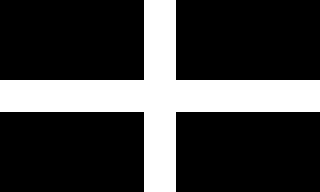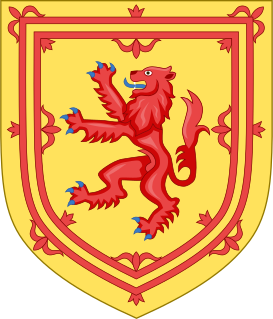 W
WArmes Prydein is an early 10th-century Welsh prophetic poem from the Book of Taliesin.
 W
WNationalism and regionalism is present in the political spectrum of the Principality of Asturias, northern Spain. Asturian nationalist parties such as Partíu Asturianista had representation in the Asturian parliament and government, and others such as Andecha Astur had representation in some municipalities. However, nationalism is more of a social than a political movement.
 W
WThe Celtic Revival was a variety of movements and trends in the 19th and 20th centuries that saw a renewed interest in aspects of Celtic culture. Artists and writers drew on the traditions of Gaelic literature, Welsh-language literature, and so-called 'Celtic art'—what historians call Insular art. Although the revival was complex and multifaceted, occurring across many fields and in various countries in Northwest Europe, its best known incarnation is probably the Irish Literary Revival. Irish writers including William Butler Yeats, Lady Gregory, "AE" Russell, Edward Martyn, Alice Milligan. and Edward Plunkett stimulated a new appreciation of traditional Irish literature and Irish poetry in the late 19th and early 20th century.
 W
WCornish nationalism is a cultural, political and social movement that seeks the recognition of Cornwall – the south-westernmost part of the island of Great Britain – as a nation distinct from England. It is usually based on three general arguments:that Cornwall has a Celtic cultural identity separate from that of England, and that the Cornish people have a national, civic or ethnic identity separate from that of English people; that Cornwall should be granted a degree of devolution or autonomy, usually in the form of a Cornish national assembly; and that Cornwall is legally a territorial and constitutional Duchy with the right to veto Westminster legislation, not merely a county of England, and has never been formally incorporated into England via an Act of Union.
 W
WIrish nationalism is a nationalist political movement which, in its broadest sense, asserts that the people of Ireland should govern Ireland as a sovereign state. Since the mid-19th century, Irish Nationalism has largely taken the form of cultural nationalism based on the principles of national self-determination and popular sovereignty. Early Irish nationalists during the 19th century such as the United Irishmen in the 1790s, Young Irelanders in the 1840s, Fenian Brotherhood during the 1880s, Fianna Fáil in the 1920s, and Sinn Féin throughout it's history, styled themselves in various ways after French left-wing radicalism and republicanism. Irish nationalism celebrates the culture of Ireland, especially the Irish language, literature, music, and sports. It grew more potent during the period in which all of Ireland was part of the United Kingdom, which led to most of the island gaining independence from the UK in 1921.
 W
WMebyon Kernow – The Party for Cornwall is a Cornish nationalist, centre-left political party in Cornwall, in southwestern Britain. It currently has four elected councillors on Cornwall Council, and several town and parish councillors across Cornwall.
 W
WMec Vannin is a political party operating in the Isle of Man. Formed in 1962, it seeks to revoke the status of Man as a British self-governing Crown dependency and establish a completely sovereign state, which would be a republic.
 W
WPan-Celticism, also known as Celticism or Celtic nationalism is a political, social and cultural movement advocating solidarity and cooperation between Celtic nations and the modern Celts in North-Western Europe. Some pan-Celtic organisations advocate the Celtic nations seceding from the United Kingdom and France and forming their own separate federal state together, while others simply advocate very close cooperation between independent sovereign Celtic nations, in the form of Irish nationalism, Scottish nationalism, Welsh nationalism, Breton nationalism, Cornish nationalism and Manx nationalism.
 W
WProtestant Irish nationalists are adherents of Protestantism in Ireland who also support Irish nationalism. Protestants have played a large role in the development of Irish nationalism since the eighteenth century, despite most Irish nationalists historically being from the Irish Catholic majority, as well as most Irish Protestants usually tending toward unionism in Ireland. Protestant nationalists have consistently been influential supporters and leaders of various movements for the political independence of Ireland from Great Britain. Historically, these movements ranged from supporting the legislative independence of the Parliament of the Kingdom of Ireland, to a form of home rule within the United Kingdom of Great Britain and Ireland, to complete independence in an Irish Republic and a United Ireland.
 W
WScottish independence is the political movement for Scotland to become a sovereign state, independent from the United Kingdom.
 W
WUnited Ireland, also referred to as Irish reunification, is the proposition that all of the island of Ireland should be a single sovereign state. At present, the island is divided politically; the sovereign Republic of Ireland has jurisdiction over the majority of Ireland, while Northern Ireland, which lies entirely within Ulster, is part of the United Kingdom. Achieving a united Ireland is a central tenet of Irish nationalism, particularly of both mainstream and dissident Irish republican political and paramilitary organisations. Unionists support Northern Ireland remaining part of the United Kingdom, and therefore oppose Irish unification.
 W
WWelsh independence is a political movement supporting Wales leaving the United Kingdom to become an independent sovereign state. Wales was conquered by Edward I of England during the 13th century, and it was incorporated into the Kingdom of England by the Laws in Wales Acts 1535 and 1542.
 W
WWelsh nationalism emphasises and celebrates the distinctiveness of Welsh language, culture, and history, and calls for more self-determination for Wales, which might include more devolved powers for the Senedd, or full independence from the United Kingdom.